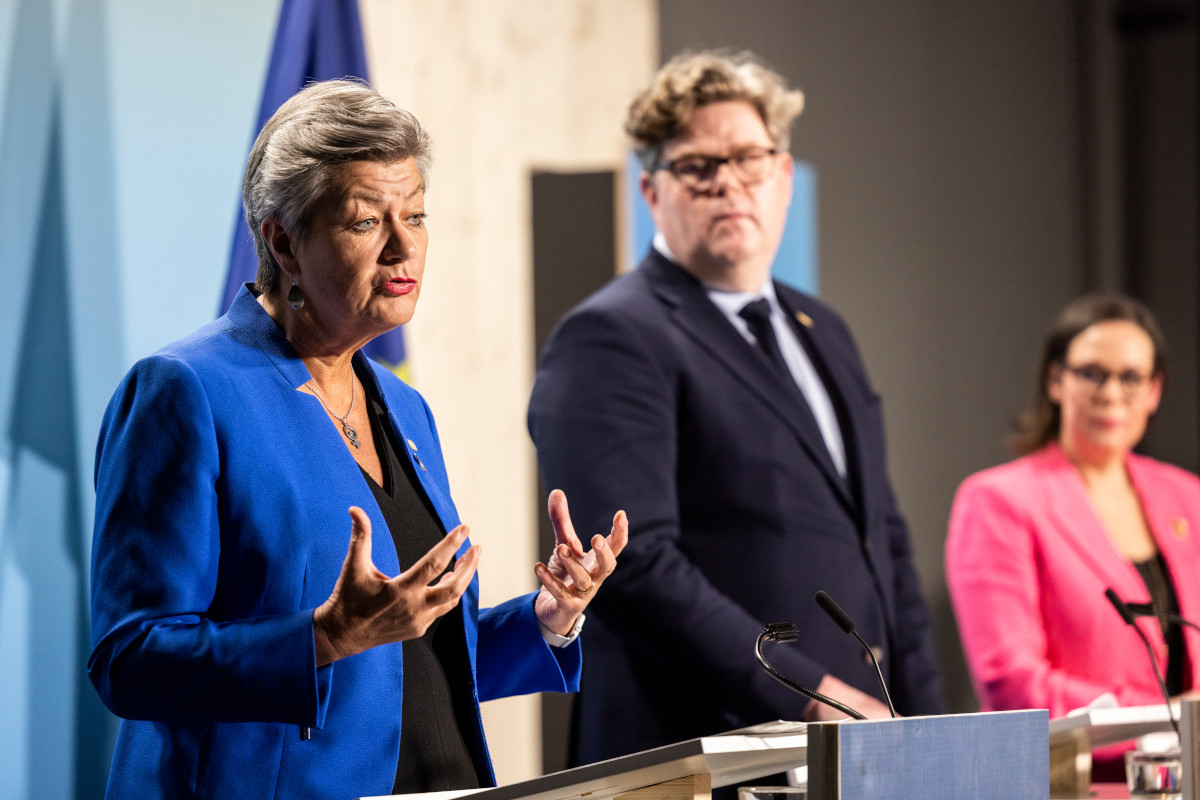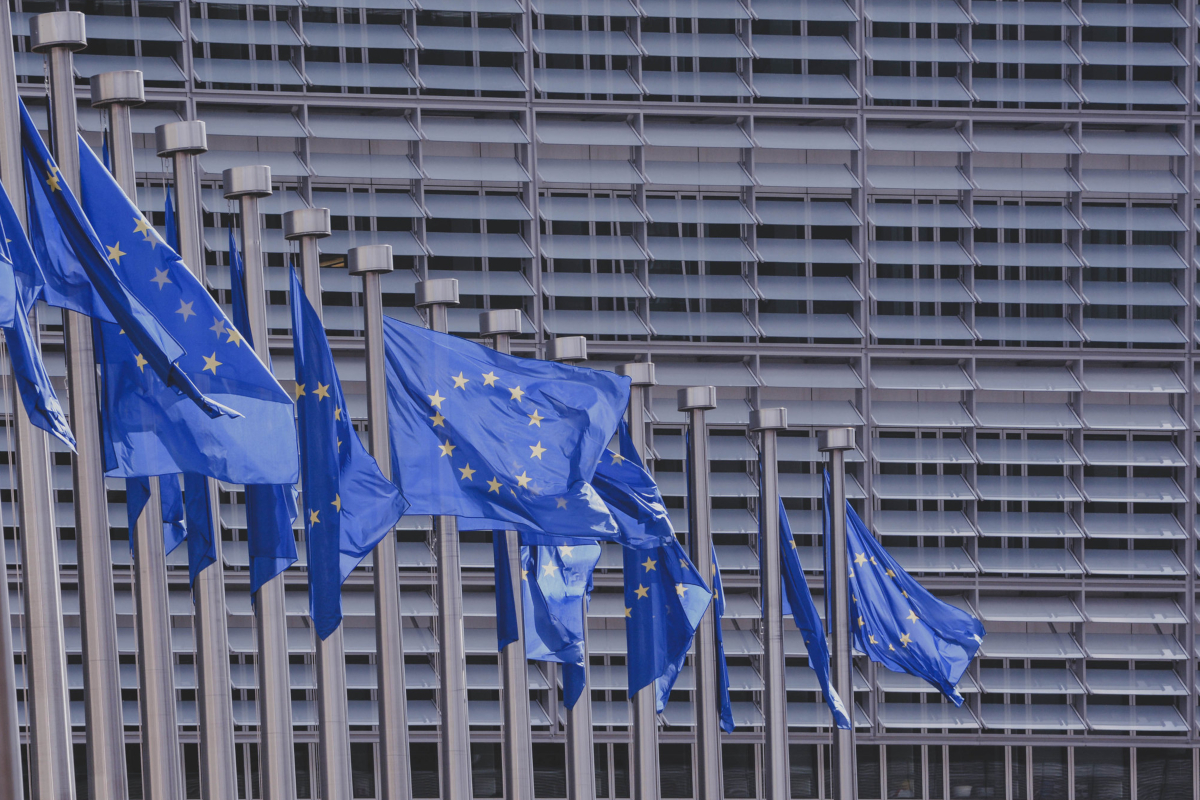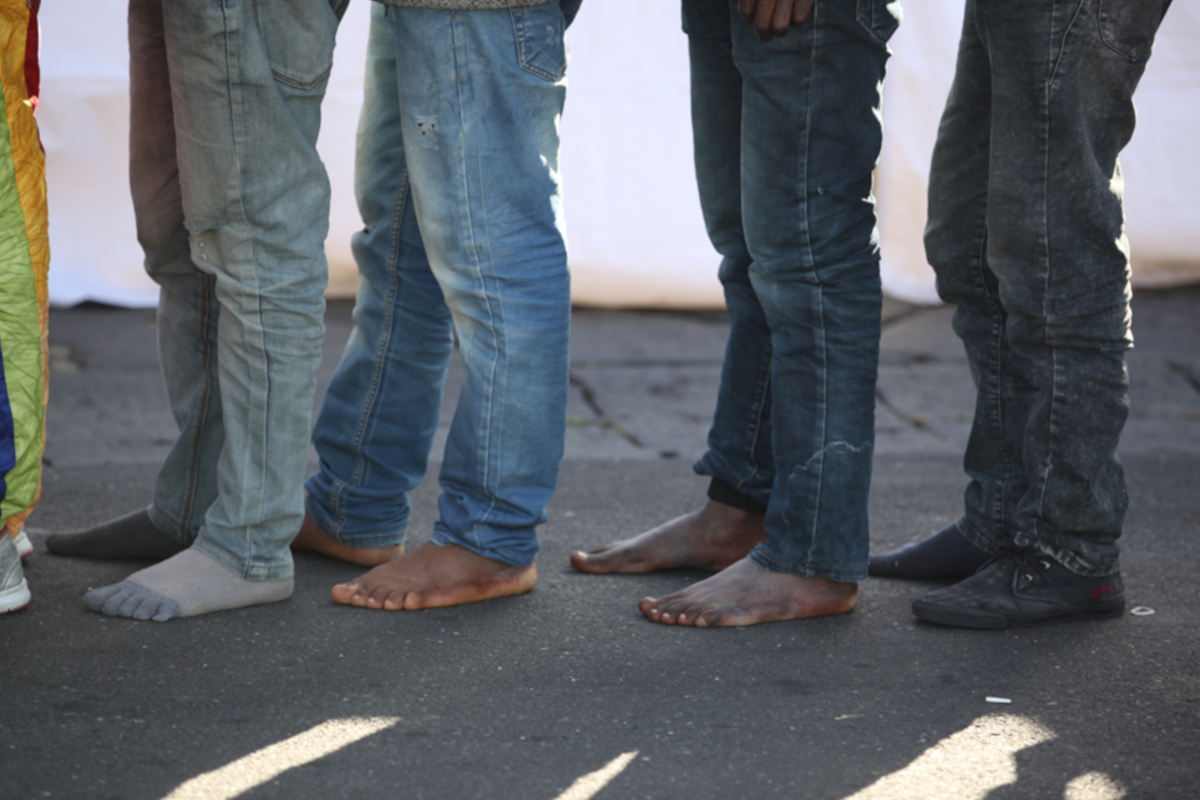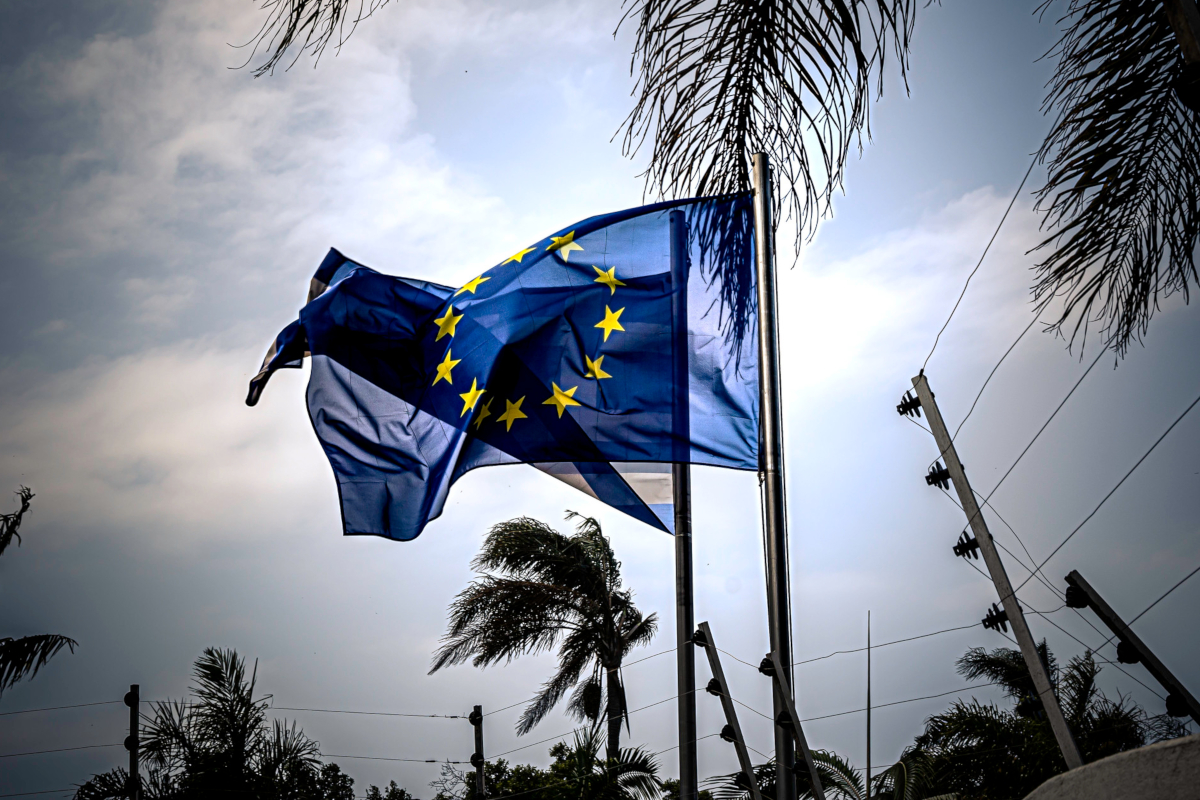EU: Tracking the Pact: Council reports on externalisation efforts in Iraq and Nigeria
Topic
Country/Region
06 April 2023
Two documents obtained by Statewatch assess the state of implementation of the Migration Action Plans approved by the European Council for Iraq and Nigeria. There is little or no attention or funding devoted to establishing legal migration pathways, with the focus instead on continued externalisation of border controls and deportations.
Support our work: become a Friend of Statewatch from as little as £1/€1 per month.

Image: Press conference with Ylva Johansson, Gunnar Strömmer and Maria Malmer Stenergard. Informal Meeting of Home Affairs and Justice Minister Home Affairs, by Johannes Frandsen
Summary
Earlier versions of these plans were published by Statewatch in late 2021. Both documents outline a continued strategy of intensified externalization, deportation efforts, and the political use of funding instruments, with little to no attention or funding devoted to establishing legal migration pathways. They also provide details on the funding used to pursue the Action Plan's goals, including through the €79.5 billion NDICI fund.
Each report summarizes the existing goals and priorities defined in the Action Plan as well as the Action File of the Operational Coordination Mechanism for the External Dimension of Migration (MOCADEM) and then lays out some of the measures implemented and the financing through which they are enabled.
Iraq
Amongst the plan's general priorities are the increase of forced and “voluntary” returns, border management and the country's stabilization, “cooperation to help resolve the situation at the EU-Belarus border”, as well as support for internally displaced persons.
The specific objectives identified in the MOCADEM Action File all center around the issue of deportation, and notably the goal of “[lifting] the Iraqi authorities' opposition in principle to the execution of all return decisions to Iraq”, as Iraq typically does not accept forced returns from the EU.
Article 25a of the Visa Code is one of the policy tools foreseen in the move towards these goals, alongside the use of “development cooperation, security, visa, trade, agriculture, etc.”. The EU-Iraq Partnership and Cooperation Agreement and the European Strategy for Iraq are also mentioned amongst the plan's measures.
The document also argues that it is currently time to “reinvigorate dialogue” on return following the formation of a committee on migration in the Iraqi government in January. There is, meanwhile, no mention of any intention to create EU-wide legal migration pathways in the document.
“Member States' legal migration and mobility programmes” are briefly mentioned as one of the plan's measures, yet none of the funding listed in the document appears to have been allocated towards the purpose of facilitating legal migration.
Funding
The report also presents different projects currently funded by the EU falling within the scope of the Action Plan, including €9 million for a program jointly organized with the IOM related to support Iraqi authorities on reintegration and “activities towards needs linked to the Belarus crisis”. €1 million was allocated to a communication campaign aimed at “[dissuading] Iraqis to take perilous journeys”, €12 million went towards a regional project related to “building more effective and efficient border management systems” in Afghanistan, Pakistan, Bangladesh, Iran and Iraq, and another €12 million towards a project aimed at “establishing more effective national and international responses to trafficking in persons and smuggling of migrants”. Among upcoming contracts were projects focused on “strengthened national systems linked to migration governance,” and measures to support displaced persons in Iraq, including through education and civil identification.
Nigeria
The Nigeria Action Plan aims at increased migration management in Nigeria, including a “reinvigoration of the working agreement with Frontex,” dismantling “criminal networks,” and strengthened coordination with EU agencies. “The activities of the Frontex-Africa Intelligence Community could be further expanded,” the report also notes.
While the plan does include some measures aimed at local humanitarian assistance and job creation, measures for establishing legal migration pathways appear to be more tentative. The document indicates that part of the plan is to “consider” whether to establish pathways for legal migration, “including possibly a Talent Partnership”, without providing further details.
“Return and readmission”, meanwhile, is amongst the plan's central priorities. Finalising the negotiations on the readmission agreement begun in 2016 is listed as one of MOCADEM's specific objectives. “Use of the visa lever and other levers” is also foreseen as part of the plan on readmission.
Funding
Funding for projects framed as humanitarian partially overlapped with projects pursuing security goals. Current EU-funded projects include, for instance, €10 million for fighting “trafficking” and “smuggling” in a project implemented by FIAPP (the Spanish development agency), and €18 million Euro from the EU Trust Fund for Africa to fight human trafficking in the Gulf of Guinea.
An EU-IOM joint initiative for “voluntary” return to the region is funded with €113 million, to be followed by the Migrant Protect, Return and Reintegration regional programme (MPRR, total EU contribution €180 million), and “a future action at country level supporting migration governance” (€28.4 million).
Other upcoming projects included funding for the reintegration of former associates of non-state armed groups in Northern Nigeria, €5.5 million towards job creation, and €34 million support for the second phase of a project for “free movement of persons and migration in West Africa” (FMM West Africa II).
Despite its framing as a project for free movement in the ECOWAS region, however, the project's predecessor received criticism for mainly centering EU goals. Writing for Migrationcontrol.info, Leonie Jegen and Franzisca Zanker comment of the previous FMM project that “rather than improving institutional capacity at the ECOWAS-regional level, its focus has been on building national capacities and to a degree improving exchange between member states for example through training border staff or those involved in anti-trafficking measures. A lot of the capacity building projects are implicitly or explicitly tied to European objectives of migration control.”
Author: Kelly Bescherer
Documentation
- Operationalisation of the Pact – Follow-up on the implementation of the Action Plan on Iraq – Presentation by the Presidency (Council doc. 5812/23, LIMITE, 7 February 2023, pdf)
- Operationalisation of the Pact – Follow-up on the implementation of the Action Plan on Nigeria - Presentation by the Presidency (Council doc. 5813/23, LIMITE, 7 February 2023, pdf)
Our work is only possible with your support.
Become a Friend of Statewatch from as little as £1/€1 per month.
Further reading

Tracking the Pact: Member state comments on the Asylum and Migration Management Regulation and Asylum Procedure Regulation
Member states are discussing a substantially redrafted version of the Asylum and Migration Management Regulation, and a new compromise version of the Asylum Procedure Regulation.

EU: Tracking the Pact: Only 207 refugees relocated so far via “voluntary solidarity mechanism”
The solidarity is voluntary, and there’s not enough of it to go around. Six months ago the EU established a “voluntary solidarity mechanism” for relocating refugees from states such as Italy, Greece and Malta. Now an internal Commission paper states that the entire scheme could be in jeopardy due to a failure by other EU member states to actually accept people for relocation. So far, only 207 people have benefited from the scheme.

EU: Tracking the Pact: Civil-military "synergies" for external migration control
In early December the Czech Presidency of the Council circulated a note on the "state of play" of the EU's various asylum and migration initiatives, intended to inform member state delegations in the Committee of Permanent Representatives (COREPER). It is essentially a brief summary of work under the outgoing Czech Presidency. According to the note, this included the exploration of possible civil-military "synergies" in externalised migration control, through a meeting of the Council's External Migration Working Party with representatives of EUCAP Sahel Niger and EUBAM Libya.
Spotted an error? If you've spotted a problem with this page, just click once to let us know.

